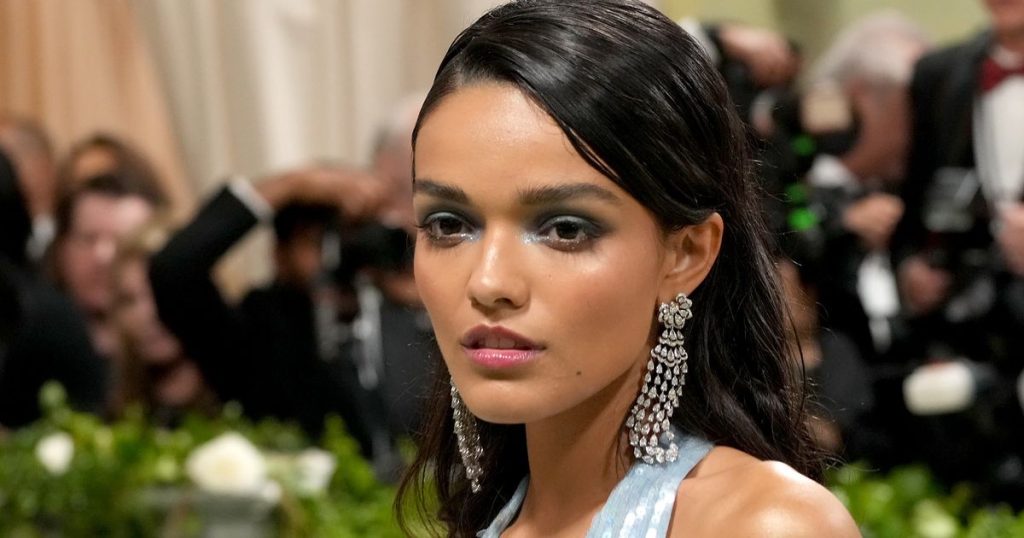Actor Rachel Zegler recently criticized the AI-generated “All Eyes on Rafah” post that has been circulating on social media, accusing it of being performative and failing to provide meaningful information or context about the situation in Gaza. The post, created by artificial intelligence, features artwork of a landscape and mountain with the phrase “All Eyes on Rafah,” which refers to Israel’s recent bombardment of camps for displaced people in Rafah, resulting in the deaths of dozens of Palestinians. Despite being widely shared on social media, Zegler and others feel that there are more effective ways to show support for Palestinians in Gaza.
Zegler, a Colombian American performer and Oscar nominee for “West Side Story,” pointed out that there are numerous other types of posts, such as GoFundMe appeals, infographics, or art pieces, that would have been more impactful in supporting the Palestinian cause than the AI-generated image that has gone viral. Many online users have echoed her sentiments, questioning why celebrities and influencers are suddenly speaking up about the attacks in Gaza only after sharing the sanitized and uncontroversial graphic. The lack of context and depth in the “All Eyes on Rafah” post is seen as a form of performative activism that does little to address the real issues at hand.
The recent conflict in Gaza began when the militant group Hamas launched a surprise attack on Israel, resulting in the deaths of 1,200 people and the taking of hostages. In response, Israel’s offensive has led to an estimated 35,000 deaths in Gaza, widespread displacement, and a severe famine crisis as reported by the United Nations. Following the international outcry over the Sunday bombardment of tent camps in Rafah, the Israel Defense Forces continued to strike at displaced Palestinians, resulting in further casualties. Videos and images of the aftermath, including one of a man carrying the body of a beheaded child, have shocked viewers around the world.
Critics of the AI-generated “All Eyes on Rafah” post argue that its lack of real-world violence and context may be driving its popularity online. Many have drawn comparisons to the black squares that were posted during the Black Lives Matter protests in 2020, which were criticized for lacking substance and drowning out important resources and information. The surge of black squares and the “All Eyes on Rafah” graphic are seen as examples of performative activism, where individuals share images to signal their support without truly engaging with the issues. By avoiding naming Palestine or Zionism, the “All Eyes on Rafah” post is seen as a safe way for liberals to show concern without addressing the root causes of the ongoing genocide in Gaza.
As the conflict in Gaza continues to escalate, with further casualties and displacements, many are calling for more meaningful actions and support for Palestinians. By sharing real accounts, images, and resources that provide context and information about the situation, individuals can show genuine solidarity and help raise awareness about the atrocities being committed. Performative activism, whether in the form of AI-generated images or other shallow gestures, ultimately detracts from the urgency and seriousness of the crisis in Gaza. Moving forward, it is important to prioritize meaningful engagement and support for those affected by the violence in the region.


